Glossary
About Wysa | Participant Information Sheet | Glossary | Contact us
Wysa Glossary
This is a glossary to help you understand the Participant Information Sheet. If there are any other words or phrases you would like clarified, please contact us using the information on the Contact us page.
Anonymisation key
This is used as part of the Pseudonymisation of the data. It is a unique code that means the research team knows your data belongs to just one person, but they don’t have access to any personal details. See also Anonymised / Anonymised data.
Anonymised / Anonymised data
Anonymising something – or making it anonymous – means removing any personal details that could identify the person the data is from, or about. This is often done for research and statistical reasons.
App
An app is a computer program (or software application) that, in this case, is designed to run on a mobile device such as a phone, tablet, or watch. Wysa is an example of an app.
Artificial Intelligence (AI)
Artificial Intelligence (AI) involves using computers to do things that traditionally need human intelligence. For Wysa this means that it uses AI to make the chatbot work and seem more like a human.
Care pathway
Care pathways are a way of planning the journey of a patient, or client, through the service. In this case it is the CNWL IAPT Care pathway that will be followed.
Central North West London NHS Foundation Trust (CNWL)
CNWL is an NHS Foundation Trust that provides healthcare to a third of London’s population, Milton Keynes and Surrey. They run Community Living Well, the IAPT service that the research project is working with.
Chatbot
A chatbot is a text computer program, like when using WhatsApp, that feels like human conversation.
Clinical activity
Any contact between a patient and a clinician, or healthcare professional, during which an assessment, treatment, care, or therapy happens.
Clinician
The qualified member of staff, such as a Doctor or Nurse, who is providing your care or therapy.
Community Living Well (CLW)
Community Living Well is the name of the IAPT service at CNWL.
https://communitylivingwell.co.uk/
Consent
Consent is giving your permission to someone to do something to you or for you – for this it is giving permission to be part of the research study. Consent must always be given freely, and you mustn’t feel you have been pressured into giving consent. You should also be informed of what you are consenting to and be able to understand it.
Consent can be given in person or over the phone (this is called verbal consent), by reading and signing something, or by clicking to say you accept on an app or website.
Consent form
A document you might sign to show you accept, and understand, the research study.
Control group
The Control group is the group of people in the research project that won’t receive access to Wysa for the first 3 months. Research has control groups to be able to compare the outcomes of people who are receiving the treatment (in this case, using Wysa) to those that aren’t.
Data controller
The Data Controller is the person, organisation or company that decides why and how any personal data should be processed. The University of Plymouth is the data controller for this research study
Data processors
A data processor is a person, company, or other body which processes personal data on another person’s behalf. University of Plymouth, the Institute for Cancer Research, CNWL and Wysa are the data processors for this research study. The Institute of Cancer Research is involved as they have a lot of experience in research statistics.
Data Protection Act
The Data Protection Act 2018 is the UK’s implementation of the General Data Protection Regulation. It controls how your personal information is used by organisations, businesses, or the government.
Data Protection Officer (DPO)
A data protection officer (DPO) ensures that an organisation applies the laws protecting personal data, such as the Data Protection Act and GDPR
Demographic
Demographics are the categories of a particular group of people, in this case the group is those taking part in the research study. It covers things such as age, race, and gender.
Ethics / Ethical
Ethics ensures the dignity, rights, safety, and well-being of the people who take part in this research study.
GDPR – General Data Protection Regulation
GDPR stands for General Data Protection Regulation. It is a Europe wide regulation on how your data can be stored, used, or changed. Please email [email protected] for a copy of our GDPR statement if you would like to see it.
IAPT (Improving Access to Psychological Therapies)
IAPT stands for Improving Access to Psychological Therapies. These services are sometimes known as talking therapies services. Talking therapies are effective treatments delivered by fully trained and qualified staff. They can help with common mental health problems like stress, anxiety, and depression.
https://www.england.nhs.uk/mental-health/adults/iapt/
Information Commissioner’s Office (ICO)
The ICO ensures that, in the UK, the laws regarding keeping and sharing information are followed.
Institute for Cancer Research
The Institute for Cancer Research is one of the research partners for this study. They are involved as the statistician works for them. The statistician works on understanding the data.
Mitigated / mitigation
When something is put in place to prevent a problem occurring
Patient groups
Group of people with experience of being a patient who have been involved in developing, in this case, the questions being asked as part of the research
Personal data
Personal data is each person’s information about themselves.
Personally Identifiable Information (PII)
Personally identifiable information is information that, when used alone or with other relevant data, can identify an individual.
Primary Research Data
The information collected during this research study.
Pseudonymisation
Where personal information is replaced, or changed, with alternative details. The changed information is then kept separate from your personal details so you can’t be identified.
Referral / Referred
You may be referred to an NHS service, such as IAPT, by your GP or another health professional. You may also self-refer.
Research data
Research data is any information that has been collected, generated or created as part of the research study. Although usually digital, research data might also include handwritten items such as notebooks and diaries.
Research Ethics Committee
A research ethics committee is a group of people appointed to review research proposals to decide if the research is ethical. This means the research must conform to recognised ethical standards, which includes respecting the dignity, rights, safety, and well-being of the people who take part.
Research Experts
People who have a lot of experience and knowledge of running research studies.
Research partners
Research partners are the different organisations involved in the research project. In this case it is CNWL, Wysa, University of Plymouth and the Institute of Cancer Research who are the research partners.
Risk of physical impact
This refers to any physical problems that could be caused by spending too long using an app on a phone. Such as eye strain or sore hands.
Routine questionnaires
The routine questionnaires in this project are commonly used measures for depression or anxiety. They are known as PHQ9 (Patient Health Questionnaire-9) and GAD7 (General Anxiety Disorder-7).
Self-referred
You can contact an NHS Service, such as IAPT, yourself and ask for an appointment, rather than it being referred by another health professional or GP.
Statistics
Statistics is the collection, organisation, analysis, interpretation, and presentation of data.
Third party service providers
A third-party supplier is a company or person who you have a written agreement with to provide a product or service on your behalf.
Transcribed
Transcribing is when recorded or spoken words are put into written form. In this case, it will be writing up the recordings of your interviews.
Transcription service
An external company who transcribes the recordings of your interviews.
Unique ID / Unique identifier / Unique Participant Number
A Unique ID or Unique Identifier is a short code that makes the record different from every other. This is used instead of personal details so that while your information will be unique, it won’t be identifiable as yours.
University Network Drives
A network drive stores information and is connected to multiple computers – in this case at the University of Plymouth.
University of Plymouth
This research study is being led by a team from the University of Plymouth




